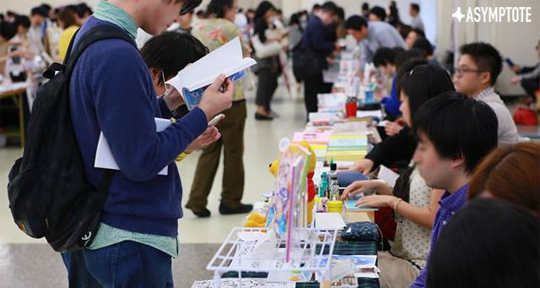Having envisioned a publishing infrastructure for Mozambicans and by Mozambicans after becoming the first published literary translator in her country, polyglot Sandra Tamele established a literary translation prize, attended the Breadloaf Translators’ Conference, obtained a diploma in translation from the Institute of Linguists Educational Trust in the United Kingdom, and eventually co-founded consortiums of literary translators and book publishers. She did all this while translating works from the English and Italian into the Mozambican Portuguese, from Premio Strega-winning Italian novelist Niccolò Ammaniti’s Eu não tenho medo (I Am Not Scared) to Jamaican poet Raymond Antrobus’s A Perseveranca (The Perseverance), and learning other languages—including the Mozambican Sign Language.
Throughout all this, establishing The London Book Fair award-winning independent press Editora Trinta Nove Zero (30.09) and the As Sete por Quatro (7×4)—which champions works by marginalised Mozambican writers writing in Mozambican Portuguese, English, and other local languages such as Makhuwa, Sena, and Changana—seems to be her career’s crown jewel so far. In this work, she has engineered a landscape more consequential than any edifice and armature: the new age of Mozambican literature, translation, and publishing. “Literary translation is still underrated in Mozambique,” Tamele laments in her essay ‘Desassimilar: Decolonizing a Granddaughter of Assimilados,’ “But I have chosen a different path now, and this work is too important for me to give up.”
In this interview, I conversed with Tamele on the intricacies of translating from English and Italian into the Mozambican Portuguese language; finding readership in the Mozambique and the rest of the Lusophone world; and being one of the architects of Mozambique’s literary and publishing scene.
Alton Melvar M Dapanas (AMMD): Did you have a road map to develop a publishing infrastructure with your many contributions to Mozambican literature? What went unmentioned behind the scenes?
Sandra Tamele (ST): I have to admit that I did not have a roadmap, but wish I had one when I decided to become a ‘PublisHer’ back in 2018; most of the shifts in my career, through this past decade, were a result of my restless, problem-solver spirit. In hindsight, I think that I never expected or even dreamed that today I could win any literary or publishing awards, nor act as a PublisHer advisory board member and president of the Mozambican Publishers and Booksellers Association, among others.
Long story short, I left a career where I felt unwanted for one where I felt invisible—and with less prospects of succession because I had never heard a single child say they wanted to become a literary translator when they grew up. The solution: a literary translation competition to raise the profile of language professionals, while promoting reading and literary translation practice among young people in Mozambique. Three years later, we had this amazing collection of stories that no publishing house in Mozambique was willing to invest in, in spite being written by award-winning authors like Alain Mabanckou, Marguerite Abouet, and Imbolo Mbue, to mention a few.
Establishing 30.09 was the solution. It went from strength to strength and now encompasses a creative writing initiative for women, workshops for illustrators, the transcription of children’s and YA books to build a Braille library, agenting for Mozambican writers, and the project of a groundbreaking bookshop and community library. I guess I am The Architect without a plan. Despite the steep learning curve and the many hats I have to wear, I believe that I’m gaining focus as I grow as a publisHer.
In 2024, I plan to be more intentional in working with my peers to provide training for a cohort of female high school graduates in key publishing and related fields, to start building the book sector infrastructure in Mozambique. A roadmap for those who follow on my footsteps is also on the agenda, in addition to building a database and statistics for the sector. I’m now also in the position to advocate for book and literacy policies with key decision makers.
AMMD: You disclosed that most Mozambican writers do not share your views about the potentials of literary translation. In what ways has 30.09 been a solution to the many challenges you previously outbraved and myths you tried (and are still trying) to dispel as a translator and publisher?






